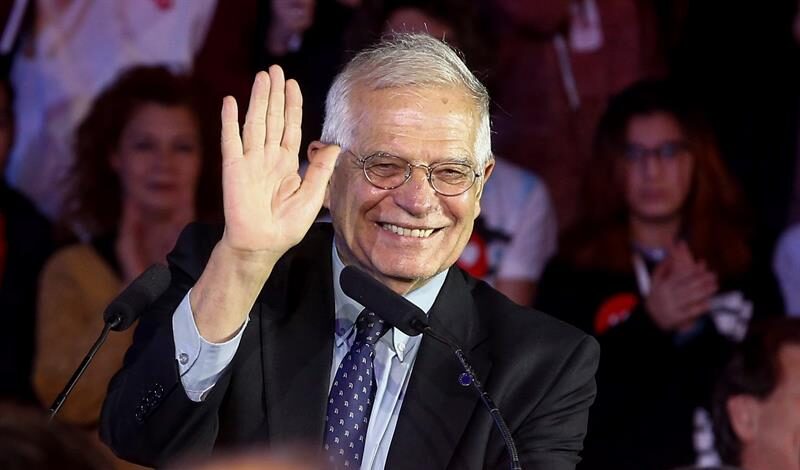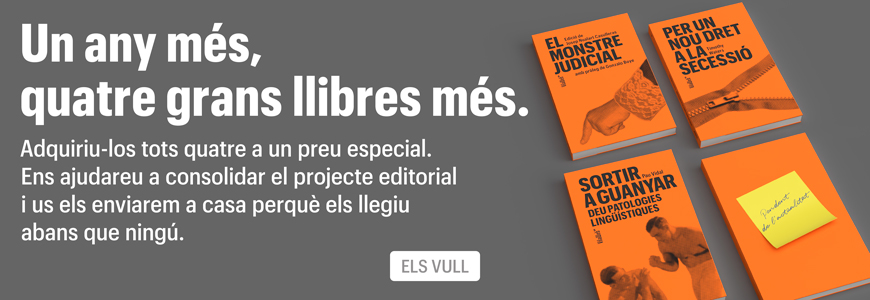16.03.2022 - 10:58
|
Actualització: 13.06.2022 - 10:14
Last Friday, on day two of the European summit in Versailles, Josep Borrell announced that the EU had pledged an additional €500 million in military aid to the Ukrainian government. The statement not only surprised the assembled journalists, but the EU leaders who had supposedly agreed to the move were also caught off guard. It is the umpteenth controversy surrounding the European High Representative for Foreign Affairs since the outbreak of the Ukrainian war, a crisis which has repeatedly put him in the spotlight, more for his gaffs than for his achievements as a diplomat.
Bold announcements, little consensus
On February 27, in the midst of a geopolitical crisis over the Russian invasion of Ukraine, the EU leaders agreed to €500 million in aid in the form of arms and other military equipment. The significance of the move did not go unnoticed: for the first time in almost three decades, the EU had agreed to supply arms to a country engaged in a conflict. Last Friday, however, Borrell suddenly announced that the sum would be doubled, totalling €1 billion in aid.
“Everyone is fully aware that we need to increase our military support for Ukraine in order to continue to put pressure on Russia”, Borrell told reporters. “Five hundred million more, then,” he proclaimed.
However, it soon became apparent that a doubling of the EU’s contribution was far from being a done deal. Two of the EU’s top leaders, German Chancellor Olaf Scholz and Dutch Prime Minister Mark Rutte, declared shortly after that the additional funds had not even been discussed during the meeting. This explains why it does not appear in the joint statement issued after the summit.
“The issue was not discussed”, Scholz told reporters. Rutte was not so conciliatory: “No, no, no,” he replied when asked by a journalist if European leaders had agreed to the proposal. “I heard this story, so it might be that this is something [that] is playing out at the [European] Commission […], but it hasn’t been jointly decided.” Several hours later, a spokesperson for Borrell made it clear that the measure had been proposed, but not agreed.
European fighter jets, a debacle of transatlantic proportions
It is not the first time during the war in Ukraine that Borrell, apparently acting on his own initiative, has caught the negotiating teams on the hop by unilaterally announcing proposals which have yet to be agreed upon. Two weeks ago he left his European and American partners dumbfounded when he announced, to everyone’s surprise, that the EU would make fighter jets available to the Ukrainian air force. The plan was, in theory, to be kept under wraps, and had not been agreed upon by the parties concerned.
According to Politico, the transfer of the fighter jets would have been possible if it had been kept secret, but it became impossible once Borrell announced it to the media: “The announcement came as a shock to many, US and European officials said, including aides in Eastern European capitals who hoped to keep the transfer quiet.”
The problem worsened in the days following the incident, as the Ukrainian government took advantage of Borrell’s surprise revelation by announcing that it would soon be in receipt of some 70 fighter jets from Poland, Slovakia and Bulgaria. The trouble was that none of the three countries had formally agreed to cede the aircraft to Kyiv, prompting Slovakia and Bulgaria to hurriedly back down.
The blunder did not end there, however. Borrell was forced to state that the transfer would be made on an individual basis by Poland, which promptly announced that it would unilaterally hand over its MiG-29 fighter jets to the Ukrainian air force. The measure had not been agreed with the EU, let alone with NATO. According to the Polish government’s announcement, they would transfer their planes to the US military base in Ramstein, Germany, from where they would be sent to Ukraine to fight Russian forces.
At this point Washington was finally forced to intervene, announcing that it was rejecting the offer and that no fighter jets would be sent to Ukraine. The reason for the refusal, according to US representatives, is the fear that Moscow would interpret the measure as a declaration of war, which could lead to an escalation of tensions that many fear would in turn lead to a nuclear conflict.
Puigdemont, French-style gardens and Russian gas: Borrell’s gaffs aside from weapons
These two recent episodes are probably Borrell’s most notable gaffs since the beginning of the conflict, though they are not the only ones. The day after he announced the EU’s plans to supposedly send planes to Ukraine, for example, Borrell stated in an appearance following a meeting of European Defence Ministers: “Thank God Zelensky is not one of those leaders who run away hidden in their car [sic].”
His choice of words, which many saw as a veiled reference to exiled Catalan President Carles Puigdemont, caused an uproar. Borrell apologized, claiming he was referring to former Ukrainian President Viktor Yanukovych, who fled the country under similar circumstances in 2014. Nevertheless, this wasn’t the first time that the High Representative had used his position to attack Catalan independence. Puigdemont expressed his take on the situation in a recent tweet: “At this tragic time for Ukraine, the last thing we need is for the EU to have such irresponsible representatives.”
Aside from personal political disputes, Borrell’s rhetoric with regard to Russia has also sparked a great deal of controversy during the Ukraine crisis. Some believe that Borrell, who has taken a considerably tougher stance on Moscow than his own party, has behaved in an excessively belligerent manner given his position as chief diplomat. Some of his statements, such as the threat in which he declared that “we will remember those who are not on our side at this solemn moment”, have not been well received by the less belligerent sectors, which include members of Spain’s ruling coalition. Others have contrasted Borrell’s figure with that of French President Emmanuel Macron, who has held a series of bilateral summits with Putin and several members of the Russian government since the outbreak of the conflict in an attempt to find a solution to the situation in Ukraine.
Even Borrell’s supposedly light-hearted comments have caused controversy. His suggestion that Europeans turn down their heating in order to fight the Russian regime was widely ridiculed. Meanwhile, others detect racist undertones in recent statements from Borrell comparing the EU to a French garden and equating the rest of the world to a jungle. Meanwhile, following his controversial tweet in which he boasted that Russians hit by EU sanctions could no longer “go shopping in Milan, party in Saint-Tropez or buy diamonds in Antwerp” Borrell was accused of being frivolous and irresponsible. He deleted the message shortly afterwards, though too late to stop the ensuing controversy.
US General George S. Patton once stated that “war is the supreme test of man”. If the conflict in Ukraine is a test for Josep Borrell, so far his performance has been rather disappointing.




